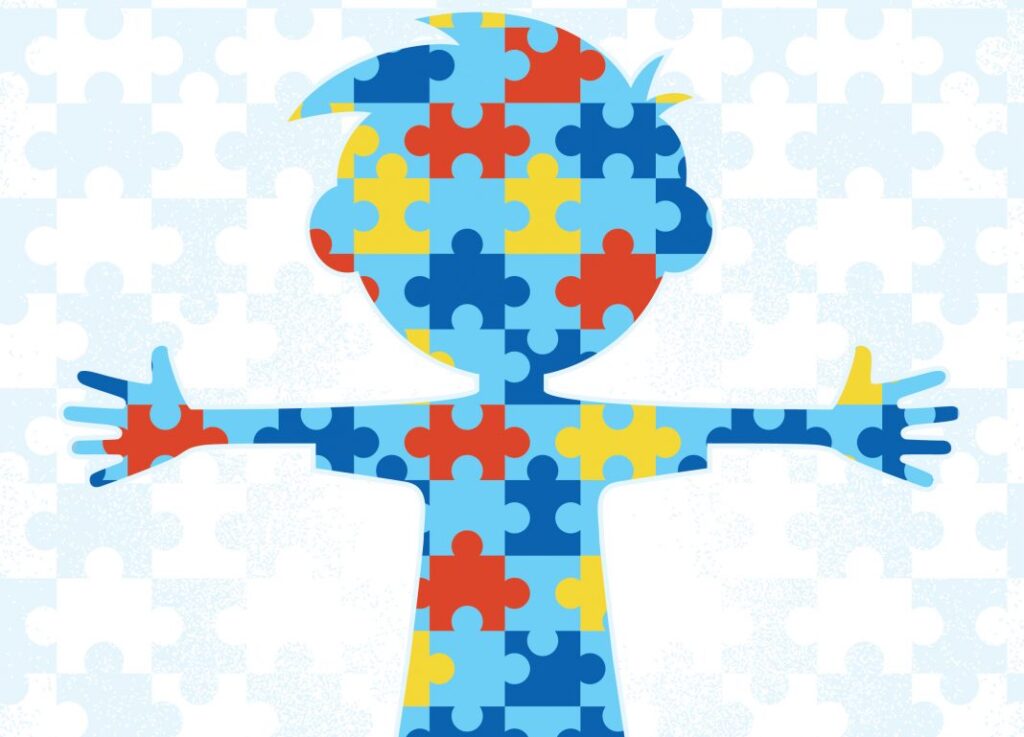
A comprehensive international study led by researchers from the University of Cambridge has found that autism diagnosed in early childhood exhibits different genetic and developmental characteristics compared to autism diagnosed later in life. The research analyzed behavioral data from children and adolescents in the U.K. and Australia, alongside genetic data from over 45,000 autistic individuals across various large cohorts in Europe and the United States.
The study, published in the journal Nature, identifies two distinct trajectories that autistic children often follow. The first trajectory is associated with early diagnosis and communication difficulties observed during infancy. The second relates to later diagnosis, which is linked to increased social and behavioral challenges during adolescence, as well as higher rates of conditions such as ADHD, depression, and post-traumatic stress disorder (PTSD).
The lead author of the study, Xinhe Zhang, PhD, noted that these findings challenge the long-standing belief that autism represents a single condition with a unified underlying cause. The authors highlighted that while autism has traditionally been seen as emerging in early childhood since its earliest descriptions in the 1940s, an increasing number of autistic individuals are now diagnosed from mid-childhood onward.
Zhang explained, “It is unknown whether earlier- and later-diagnosed autism have different developmental trajectories and genetic profiles.” The research utilized longitudinal data from four independent birth cohorts to demonstrate that children diagnosed with autism before the age of six often display behavioral difficulties from an early age, such as challenges in social interactions. Conversely, those diagnosed later in life are more likely to face social and behavioral difficulties during their teenage years, along with a heightened risk of mental health issues.
When examining the genetic data, the researchers discovered that the profiles differed significantly between those diagnosed early and those diagnosed later, with only a modest overlap. The study found that common heritable polygenic factors could account for approximately 11% of the variation in age at autism diagnosis.
The research highlighted that the average genetic profile of later-diagnosed autism resembles that of ADHD and other mental health disorders more closely than it resembles that of early-diagnosed autism. The authors pointed out that a lack of support in early childhood may also contribute to the increased risk of mental health issues among those diagnosed later, potentially exposing them to greater vulnerabilities, such as bullying prior to diagnosis.
Zhang emphasized the implications of their findings, indicating that the timing of an autism diagnosis reflects more than just disparities in healthcare access or awareness. “Our findings suggest that earlier and later diagnosed autism are not valid diagnostic terms,” he stated.
The study identifies two “modestly genetically correlated” autism polygenic factors. One factor is linked to earlier diagnosis and lower social and communication abilities, while the other is associated with later diagnosis and increased socioemotional and behavioral difficulties during adolescence.
Senior study author Varun Warrier, PhD, remarked, “The term ‘autism’ likely describes multiple conditions.” He added that understanding the complex interaction between genetics and social factors is crucial for addressing poorer mental health outcomes among individuals diagnosed later in life.
These findings have significant implications for how autism is conceptualized, researched, and supported. The research suggests that variations in genetics and development contribute to when and how autistic traits manifest, explaining why some individuals receive their diagnosis later in life.
Warrier concluded by stating, “Understanding how the features of autism emerge not just in early childhood but later could help us recognize, diagnose, and support autistic individuals of all ages.” The study ultimately reinforces the notion that “autism” encompasses multiple phenomena with differing underlying causes, developmental paths, and associations with mental health conditions.





